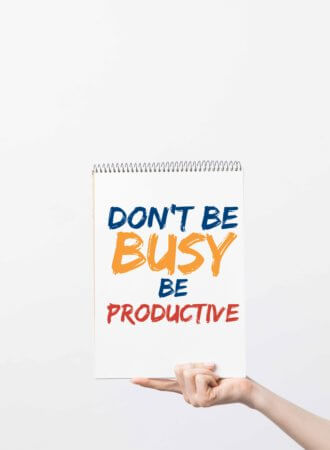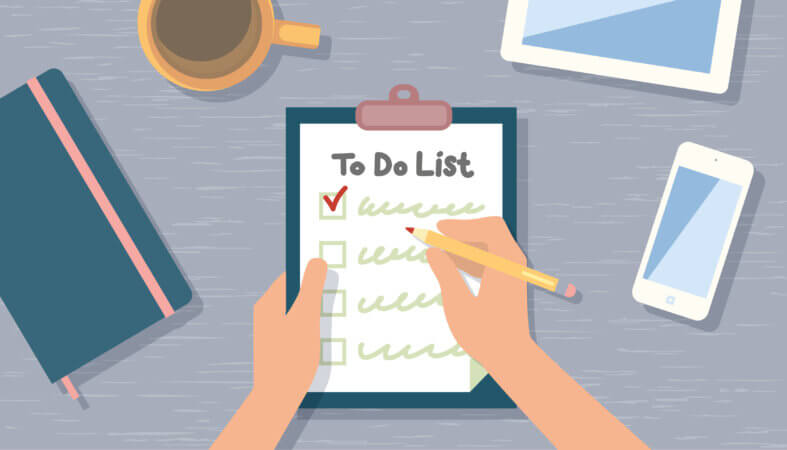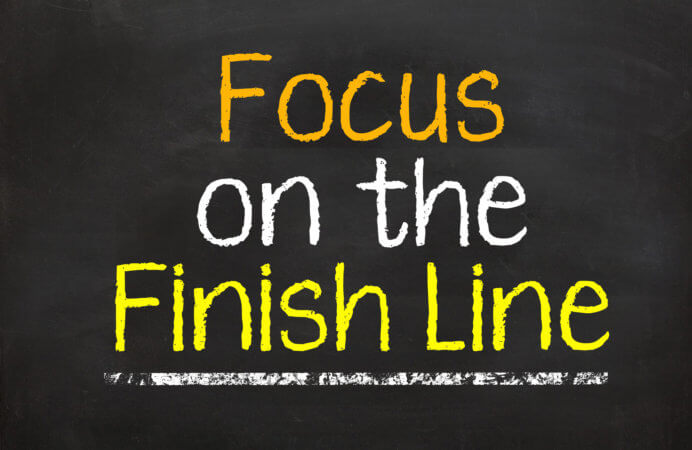Learn to Delegate; it helps you be more productive.
Do you dislike delegating? Do you prefer to do things on your own? Delegating is tough for a lot of people – especially go-getters. It’s hard to come to terms with the fact that you may need to give things off to other people, but delegating is an essential key step to success.
Let’s face it: You’re not a superhero. You may be fast, smart, hard-working, and success-driven, but you can’t be in 100 places at once doing 100 different things.

Enter delegation, your friend, your mighty hero, and your new tool for a successful life of focus.
Did you just realize you lost points on your assignment because you forgot to do something?
Was that one too many face palms for you?
My assignment checklist can help you remember the details.
Check it out! It is FREE!!!!
Since it isn’t necessarily intuitive, it’s essential to learn how to delegate.
If you want to be, or feel you need to be, the person who does everything, let’s think about that.
Are you doing your family or your work team any favors? If you do everything, how do the others learn anything? If something happened to you, or you got tasked with a major project, how would anyone accomplish anything? They would not know what to do since you did everything.
Think about this: Suppose you get promoted to a supervisory position. You take your skills with you. What you will leave behind is a team that is not going to be productive because you have not allowed them to learn any important tasks. Your children will not learn some useful skills, because you did the work for them. Do you really think it is so important that you burn yourself out at the expense of others?
Does that make sense?
If you want to be a good learner, or simply just known for being effective and efficient, you need to learn to delegate. The Harvard Business Review would agree with me.
Steps to help you delegate
- Define
Begin with defining which tasks are great candidates for delegation. You don’t want to delegate something that you’re an expert at; similarly, you don’t want to delegate a task to someone when you really enjoy doing it. If you want to teach someone a task, start assigning others something either really simple or just a little bit beyond their skill set. Allow them to learn and stretch.
Think about which tasks derail your focus the most. Typically, these tasks will be:
- Small, menial tasks. This could mean cleaning your house or filling out a spreadsheet.
- Teachable tasks. These are the things that you can easily teach someone. Tasks that someone else can take over without it being a cost to your business or productivity.
- Tasks that you hate. Some things are less fun than others. If you’re able to delegate tasks that you hate doing, you’ll be able to fill your day with more productive, rewarding work – which keeps your focus in tip-top shape.
- Time-consuming tasks. If you have a lot of projects and some are more time-consuming than others, you may want to assess if you can delegate these to someone else. Be sure that these time-consuming tasks aren’t a high priority and that you don’t need to complete them yourself. If they’re not, then hand them over to someone else!

- Determine
Who should you hand a task to? This is always another tough but important question. Delegation is a game of strategy, and if you play it right, you and your peers can be really successful.
You shouldn’t be delegating all your tasks to one person. That will cause a ripple effect of unproductivity. What once made you lose focus will now make this person lose focus, and then we’re back to square one.
Now that we’ve established that, the next thing to keep in mind is that you shouldn’t be delegating your tasks to the wrong people. This takes judgment and maybe some time, but it’s an essential step in the delegation process. Make sure you’re delegating tasks to people who are eager, willing, and able to take them on.
For example, at work, you wouldn’t want to hand over a big project to an intern or an assistant. Similarly, you wouldn’t hire an 11-year-old with no experience to babysit your infant. It’s all about gauging what makes the most sense and proceeding from there.
Delegating isn’t so hard after all! Sure, it takes practice, but everything does. With time and effort, delegating will begin to feel more natural for you, and you’ll have an easier time focusing on what really matters to you.
Did you just realize you lost points on your assignment because you forgot to do something?
Was that one too many face palms for you?
My assignment checklist can help you remember the details.
Check it out! It is FREE!!!!
Prioritizing is crucial.
When you have a million things going on, and you can’t attack them all at once, your first inclination is probably to prioritize. You may not even realize how strategic you are by prioritizing tasks, but it’s a great strategy – and it comes into play with focus.
You can home in on your goals and delegate all you want, but at the end of the day, some responsibilities remain – and there’s only one of you to do them all. That’s when your trusty friend, prioritization, is there to help.
The Harvard Business Review has some ideas as well.
- Pick a Method
To prioritize, begin by picking your method of organization. You won’t be able to rank your to-do items in your head without a little bit of help, so you must create a method for your madness. You may opt for a handwritten list or a spreadsheet – whatever it is that works for you!
- Analyze Your List
Once you have a way to keep everything in order, you’ll want to organize and analyze that list. Take a look at your responsibilities and tasks at hand, analyze them, and sort through them. Some of them may be things you can put on the back burner; others may be urgent. Use this time to label them so that you know how to proceed with your list.

- Rank Your Priorities
We mentioned that some items may be urgent. That’s something to really focus on. In this step, go through the remaining priorities. Label them as critical, non-urgent, time-sensitive, and not time-sensitive. You may have other relevant labels, but this is an excellent place to start.
- Put a Number on It
Before you can decide which items to attack first, you need to have a rough timetable for your plan. How long will each task take? Do you need time to plan before or after your responsibilities? Are there any quick tasks you can knock out? This is especially important if you’re working with deadlines, so be sure to take this step seriously and really give a reasonable time estimate for each of your items.
- Sort it out
You now have a sense of what you need to do, when these things need to get done, and how much time everything takes. This is the fun part – sort it all out! At this point, you should be putting the items at the top if they are a time-sensitive and high priority. The process should feel natural, but you can always refer to these steps to make sure you’re making good progress.
Did you just realize you lost points on your assignment because you forgot to do something?
Was that one too many face palms for you?
My assignment checklist can help you remember the details.
Check it out! It is FREE!!!!
A Few Other Ways…
If you don’t want to follow a step-by-step method of prioritization, there are several other tactics you can follow. You can try out one of them or all of them!
Pareto Principle
At some point in your life, you’ve probably heard of the Pareto Principle or the 80/20 rule. This says that 80% of your results come from 20% of your work. In other words, you can get a lot done in a little time – as long as it’s the right time, and you’re motivated, inspired, and ready to get it done.
To tap into that 20%, you’ll need to do some self-exploration to find out what works best for you. Are you most inspired in the morning? Do you work best under a hard deadline? When are you operating at your fullest potential?
It’ll take some trial and error to nail this down, but once you do, you can optimize your workflow by always working at your best.
Most Important Tasks (MITs)
If you’ve ever heard someone refer to their MITs, they’re talking about their most important tasks. Everyone has them – but it’s not always so easy to pinpoint what they are!
When you wake up in the morning, you already have a set of MITs. These are the things that you know you must get done by the end of the day. Some to-do list items are “nice to have” items, but your MITs are absolute must-dos. Write those out and pay attention to them.
Utilize Productivity Tools
There are tons of tools out there for you to use to prioritize your tasks for the day. These are project management tools and productivity tools. They’re on your side, and they’ll help you mitigate your tasks so that you know which ones to focus on when to focus on them, and how much time each of them is taking you.
Why prioritize? Prioritizing lets you clear through the noise and really focus on what matters to you. With all of these methods, you’re figuring out where your focus needs to be throughout the day/week, and you’re coming up with a strategy to get you there.
Plan
Let’s take it back to the big picture. Delegating and prioritizing focus on the day-to-day, which is important, but we can’t forget about our big-picture focus. That focus is what drives you, incentivizes you, and pushes you to work for something bigger.

When you’re focusing on the big picture, you need to come up with an ultimate plan. This plan will help keep you grounded; it will remind you of where your focus lies when it gets derailed. When you’re caught up in the nitty-gritty, you can refer back to this plan to get you back on track.
- Come Up with an End Goal
Your plan should never be aimless. When you construct a plan – whether that be daily, weekly, or yearly – make sure to have a focus on the outcome. This will drive all your actions forward and propel you in the right direction – toward your big-picture goals.
- Remember Your Purpose and Your Why
Every plan you make should come back to your purpose. If your purpose is to be a digital marketer, your plans should revolve around that. If your plan is to create a portfolio of photographs, focus on that. Your focus is only as good as your defined purpose, so keep that in mind and remember your purpose when you create your plans.
- Create a List of Actionable Items
Sometimes we get so caught up in the minutiae of planning that we forget to actually plan! Don’t let that happen. Instead, make sure your strategy includes a list of actionable items so that you have a step-by-step process to focus on for the day. If you don’t have actionable items, every time you refer to your plan, you’ll waste a little bit of time trying to discern what you should do or what step you should take. On your plan, outline exactly what you need to do to keep your focus on your big picture.
Conclusion
Are you still with me? How’s your focus level?
You’re off to a good start because you’ve stuck around for the whole shebang. It may seem simple, but it’ll take some time and… focus! But that’s okay, that’s half the fun. If you need to start small, start small. If you’re ready to go all-in, you can do that, too! You now know the importance of focus in your life. You know that it begins with a big picture and an assessment of your focus patterns. It means cutting through the noise and eliminating unnecessary tasks and distractions that derail your focus. You know how to delegate and prioritize to boost your productivity. You also know that you need to make a plan to put everything into action.
Focus leads to productivity, and similarly, a lack of focus typically makes you unproductive. The power of focus is real, and it is something that can be achieved. It may not happen overnight (most things don’t!), but eventually, you can learn how to be a focused person – focusing on the right things, avoiding distractions, and working towards greatness to achieve your goals.
The best time to start is now. Your future self, your tomorrow self, and your today self will thank you for narrowing in on something important to you and using strong focus to get you there. Plus, you’ve made it this far, so you’re off to a great start! Good luck and happy focusing!
If you found this useful, or have some thought about it, hit reply and let me know.
I started a new Facebook group recently. It really is brand new. It is a private group with the goal of creating a safe place for adult students to get support and ask questions. I have ideas for things I might do in the future, but I will be guided by the desires of the group members. Please check it out. I would hope you would like to join and help me build the group into something useful.
Back to School: Supporting adults earning college degrees
https://www.facebook.com/groups/552269656724148
Did you just realize you lost points on your assignment because you forgot to do something?
Was that one too many face palms for you?
My assignment checklist can help you remember the details.
Check it out! It is FREE!!!!
If you know someone who might find this helpful, please share this.
Are you interested in APA or academic writing help? If so, hit reply and let me know what kind of help you need.
If there is something you would like me to discuss, or a question about college or study tips, hit that reply button and ask me. I may not know the answer, but I just might have the information you want and need.
Remember that you are supported, and you can do this!
Until next week,
Valerie
Providing information and tools to help harried adult college students earn their degrees without losing their sanity.